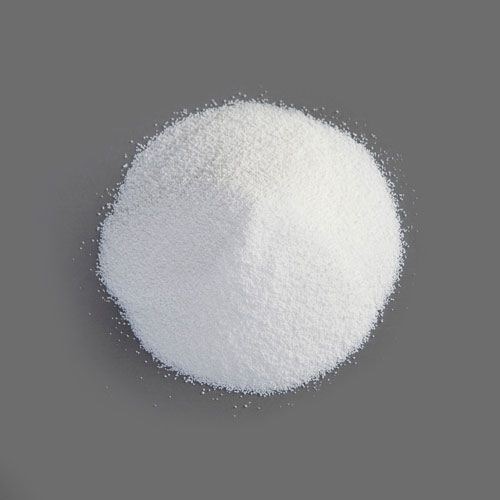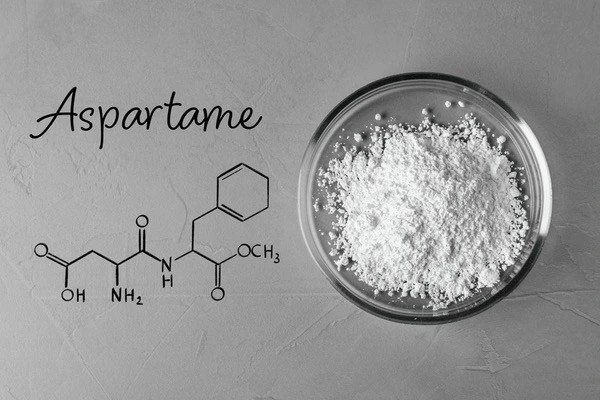







Content Menu
● Origins of the "Rat Poison" Myth
● Regulatory Status and Health Authority Evaluations
● Aspartame and Human Health: Scientific Evidence
>> Recent Study Highlights (2025)
● Metabolic, Neurological, and Other Side Effects
● Aspartame in Children, Pregnancy, and Special Populations
● Balancing Risks and Benefits for Manufacturers and Consumers
● Frequently Asked Questions (FAQ)
>> 1. What is aspartame and why is it controversial?
>> 2. Is aspartame really "rat poison"?
>> 3. Can aspartame cause cancer or other major diseases?
>> 4. Who should avoid aspartame?
>> 5. Should manufacturers reformulate away from aspartame?
Aspartame is a widely used artificial sweetener, commonly found in diet sodas, sugar-free chewing gum, tabletop sweeteners, and countless low-calorie and reduced-sugar foods. With growing consumer concern about food safety and nutritional health, aspartame's safety profile is a highly debated topic—one that is often muddled by myths likening it to "rat poison." This article provides a comprehensive analysis of the scientific evidence on aspartame, debunks persistent myths, and offers practical guidance for manufacturers, consumers, and health professionals.

Aspartame is an artificial, non-saccharide sweetener valued for its sweetening intensity—about 200 times that of table sugar, sucrose. Chemically, it is a methyl ester of the aspartic acid/phenylalanine dipeptide, breaking down in the body into aspartic acid, phenylalanine, and methanol. This breakdown process has raised safety concerns, as methanol can be toxic in high doses. However, the quantity of methanol produced by aspartame metabolism is far below toxic thresholds and is frequently exceeded in ordinary diets containing fruits and vegetables.[10]
Aspartame has been used in the global food supply for over four decades, with widespread regulation and intake monitoring.
The "rat poison" label attached to aspartame is a mischaracterization born from sensational interpretations of early animal studies. Early laboratory tests sometimes indicated that rats developed tumors, neurological disorders, or metabolic changes when exposed to extremely high doses of artificial sweeteners. However, these doses are not comparable to human dietary exposure, and rodents are inherently prone to certain tumors, making direct extrapolation challenging.[11]
Current scientific consensus does not support the idea that aspartame is a poison in the quantities humans typically consume.[4][12]
Aspartame has undergone multiple, rigorous evaluations by food safety authorities:
- World Health Organization (WHO): In 2023, the International Agency for Research on Cancer (IARC) classified aspartame as "possibly carcinogenic to humans" (Group 2B) based on limited evidence for specific cancers, particularly hepatocellular carcinoma. However, the WHO and the Food and Agriculture Organization (FAO) Joint Expert Committee on Food Additives (JECFA) reaffirmed an acceptable daily intake (ADI) limit of 0–40 mg/kg body weight, asserting that intake within these limits is safe for most people.[2]
- US Food and Drug Administration (FDA): The FDA has repeatedly reviewed animal and human studies and finds no convincing evidence linking aspartame to cancer, neurological harm, or developmental toxicity at permitted intake levels. They disagree with the IARC's carcinogen classification from 2023, emphasizing significant shortcomings in the studies that suggested cancer risk.[4]
- EU and Other Bodies: European and Japanese regulatory agencies also support aspartame's safety at currently approved levels, although they continue to monitor new studies.

- Delayed Puberty and Reproductive System: Researchers from Taiwan reported delayed puberty in female rat offspring exposed to aspartame during pregnancy, suggesting possible mitochondrial dysfunction and increased ovarian oxidative stress. No direct human evidence yet exists for these effects, but the findings suggest the need for further investigation into reproductive safety at early-life exposures.[1]
- Diabetes and Metabolic Effects: The French NutrinetSante cohort (100,000+ participants) reported higher risks of type 2 diabetes with regular consumption of foods containing mixtures of additives, including aspartame. This is supported by mounting evidence that widespread low-calorie sweetener use may not aid weight loss or improve metabolic outcomes over the long term.[1]
- Gut Microbiome and Brain Tumor Progression: Chinese studies using advanced omics technologies indicated that aspartame can alter gut microbiota composition in mice and may influence gene expression relevant to glioblastoma progression (a form of aggressive brain tumor). Although these animal studies show concerning results, it is not established that such mechanisms occur in humans.[7]
- Stroke and Neurotoxicity Risk: Computational toxicology from 2025 also points to a possible link between aspartame, ischemic stroke risk, and pathways that may promote neurotoxicity. These findings are preliminary and based on in vitro and animal models, necessitating further high-quality human research.[1]
- Atherosclerosis and Insulin Resistance: Research at Karolinska Institutet found that aspartame intake in mice stimulates insulin release and increases atherosclerosis compared to sugar, potentially via an inflammatory pathway involving the protein CX3CL1. While aspartame affected insulin in both mice and monkeys, human studies to confirm these cardiovascular risks are ongoing.[3]
- Cognitive Impacts: Large-scale observational studies revealed an association between moderate-to-high aspartame intake and faster cognitive decline, equivalent to aging the brain by over 1.5 years versus low consumption groups. These results were observational and cannot definitively prove that aspartame causes cognitive impairment, but suggest a need for caution among older adults and those at risk for neurodegenerative diseases.[5][8]
While aspartame has been under scrutiny for its presumed link to cancer for decades, most major health agencies agree that the current evidence from human studies is weak or inconclusive. The IARC's "possibly carcinogenic" label refers to limited data, primarily involving rare cancer types in animal experiments and certain high-intake subpopulations.[6][2][4]
A typical adult would need to consume over nine cans of diet soda with aspartame daily to reach the current ADI. The majority of large observational human studies have found no meaningful association between aspartame ingestion and cancer at normal consumption levels.[2]
- Phenylketonuria (PKU): Individuals with PKU (a rare inherited metabolic disorder) must avoid aspartame because their bodies cannot metabolize phenylalanine, a breakdown product of aspartame.[10]
- General Public: For most adults and children without PKU, scientific reviews confirm that aspartame can be safely consumed within established limits. There is no robust evidence for allergic reactions or severe acute toxicity at approved doses.[10]
- Mood, Depression, and Headache: Some short-term studies allude to possible worsened mood, irritability, headache, and even depression with high aspartame consumption. However, meta-analyses and randomized controlled trials to date are largely inconclusive and often criticize study design or lack of reproducibility.
- Gut Microbiota and Long-Term Safety: Newer research indicates that aspartame may alter gut microbiome diversity and metabolic pathways, but these findings are based on animal studies, and human data are insufficient for clear conclusions.[7]
Children, pregnant women, and individuals with metabolic or neurological vulnerabilities require critical consideration:
- Children: Regulatory bodies advise conservative intake, mindful of developing metabolic and neurological systems.
- Pregnancy: While considered safe within ADI limits, aspartame intake should be minimized due to phenylalanine exposure, especially among women with undiagnosed PKU.[10]
- Chronic Diseases: Those with diabetes, hypertension, a prior history of cancer, or psychiatric disorders should consult with healthcare professionals before regular aspartame consumption.
Manufacturers using aspartame benefit from its stability, cost-effectiveness, and sugar replacement capacity, particularly appealing to calorie-conscious consumers and diabetics. As the market evolves, it is crucial to stay updated on regulatory changes due to new research and potential reformulation requests for consumer safety. Blending aspartame with other sweeteners (stevia, erythritol) is an industry trend that may reduce exposure without sacrificing taste.[4][1]
Aspartame is not rat poison, but rather a rigorously studied artificial sweetener subject to extensive regulatory review. Decades of human and animal studies, including new research in 2025, have highlighted possible risks—such as metabolic disturbances, potential cancer risk, cognitive decline, vascular effects, and changes to the gut microbiome. Most findings point to increased risks only with very high, prolonged consumption, and current guidelines permit safe use for the general public within established limits. Caution is urged for children, pregnant women, those with PKU, and susceptible populations, pending further research. All consumers and manufacturers should stay informed about evolving scientific evidence and regulatory guidance when using or formulating with aspartame.[3][2][7][1][4]

Aspartame is a low-calorie artificial sweetener. Its safety is controversial due to conflicting research findings and public misconceptions rooted in exaggerated claims about animal studies and cancer risk.[2][4]
No. The term reflects exaggerated interpretations of animal data, not findings from studies of human dietary exposure. No regulatory agency classifies aspartame as a poison.[2][4]
Current evidence suggests at most a weak association between high aspartame consumption and some rare cancers, but no convincing link at normal intake levels. Ongoing studies continue to monitor for cancer, stroke, and neurological effects.[5][6][1][2]
People with PKU, children, pregnant women, and those worried about diabetes, migraines, or mood symptoms should limit or avoid aspartame. Anyone with special medical conditions should consult their healthcare provider first.[10]
Manufacturers should monitor evolving regulations and consumer preferences. Alternative sweeteners and blends can help diversify risk and respond to market demand for "clean label" and low-risk sweetener solutions.[7][1]
[1](https://www.foodwatch.org/en/new-studies-reinforce-health-concerns-over-aspartame-but-eu-action-still-missing)
[2](https://www.who.int/news/item/14-07-2023-aspartame-hazard-and-risk-assessment-results-released)
[3](https://news.ki.se/how-aspartame-affects-blood-vessels-in-mice)
[4](https://www.fda.gov/food/food-additives-petitions/aspartame-and-other-sweeteners-food)
[5](https://www.cnn.com/2025/09/03/health/artificial-sweetener-cognition-wellness)
[6](https://pmc.ncbi.nlm.nih.gov/articles/PMC12286081/)
[7](https://www.foodadditivesasia.com/market-insights/aspartame-2025-health-debates-science-market-trends)
[8](https://www.neurology.org/doi/10.1212/WNL.0000000000214023)
[9](https://yuka.io/en/aspartame-investigation/)
[10](https://www.webmd.com/diet/what-to-know-about-aspartame)
[11](https://www.reddit.com/r/science/comments/68u31/who_could_imagine_a_private_citizen_would_do_an/)
[12](https://health.clevelandclinic.org/aspartame-risks)
